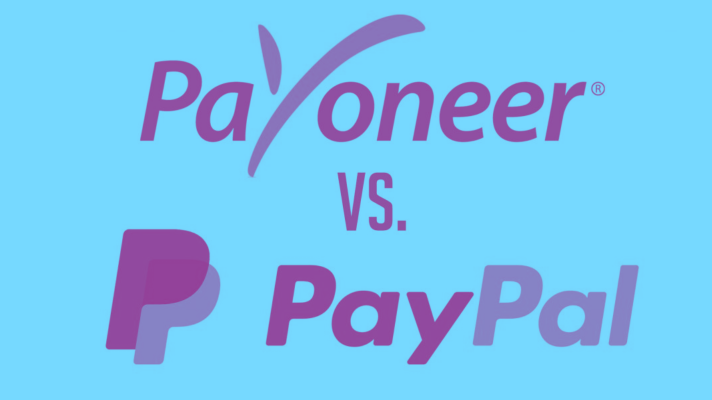Online transactions and global payments have become integral to our lives in the digital age. PayPal, a household name in the world of online payment solutions, has dominated the market for many years. However, Payoneer has emerged as a strong competitor, offering an alternative for individuals and businesses looking for efficient and reliable cross-border payment services. In this blog post, we will delve into the features, benefits, and drawbacks of Payoneer and PayPal to help you determine which platform is better for your specific needs.

- Overview of Payoneer and PayPal
To begin, let’s briefly explore what Payoneer and PayPal are and how they operate. PayPal, founded in 1998, has established itself as a leading global payment service provider. It allows users to send and receive money online, make purchases, and transfer funds to their bank accounts. Payoneer, founded in 2005, focuses on facilitating cross-border payments, catering to freelancers, businesses, and e-commerce sellers around the world. - Accessibility and Global Reach
One of the crucial factors to consider when comparing Payoneer and PayPal is their accessibility and global reach. PayPal operates in over 200 countries and supports more than 25 currencies, making it widely available and recognized. Payoneer, on the other hand, operates in over 200 countries but supports more than 150 currencies, making it a preferred choice for those dealing with a broader range of currencies. Moreover, Payoneer offers local bank account integration, allowing users to receive payments as if they had a local bank account in various countries. This feature can be particularly advantageous for freelancers and international businesses. - Fees and Charges
When it comes to fees and charges, both Payoneer and PayPal have their own fee structures. PayPal charges fees for various types of transactions, including receiving payments, sending payments internationally, and currency conversions. The fees can vary depending on the country and currency involved. Payoneer, on the other hand, charges fees for services such as receiving payments, withdrawing funds, and currency conversions. Comparing the fees between the two platforms is essential, as it can significantly impact the overall cost of your transactions. - Security and Buyer/Seller Protection
Security is paramount when dealing with online payments. Both Payoneer and PayPal prioritize security measures to ensure the safety of their users’ transactions. PayPal employs encryption technology and two-factor authentication and provides purchase protection for buyers, offering refunds in case of unauthorized transactions or items not received. Payoneer also incorporates encryption, two-factor authentication, and a dedicated dispute resolution center to address any issues that may arise. It’s worth noting that while both platforms have robust security measures, PayPal’s longstanding reputation and wide user base may provide users with an added sense of trust and confidence. - Integration and Ease of Use
The ease of integration and use can greatly impact your overall experience with a payment platform. PayPal offers a straightforward integration process and is widely supported by various e-commerce platforms, making it a popular choice for online businesses. Payoneer, too, provides integration with several e-commerce platforms and marketplaces, but its compatibility may vary depending on the specific platform. In terms of user interface and navigation, both platforms offer intuitive and user-friendly interfaces, enabling users to manage their accounts, transactions, and balances with relative ease.
Verdict – Who is better between Payoneer and PayPal
Payoneer and PayPal offer reliable and efficient payment solutions for individuals and businesses. While PayPal is a household name with widespread recognition, Payoneer has gained popularity as a strong alternative, particularly for freelancers and international businesses. The choice between the two platforms ultimately depends on your specific needs and priorities. Consider factors such as accessibility, fees, security, buyer/seller protection, and ease of use to make an informed decision. It’s advisable to evaluate your requirements and explore the features of each platform before settling on the one that aligns best with your goals and preferences.


